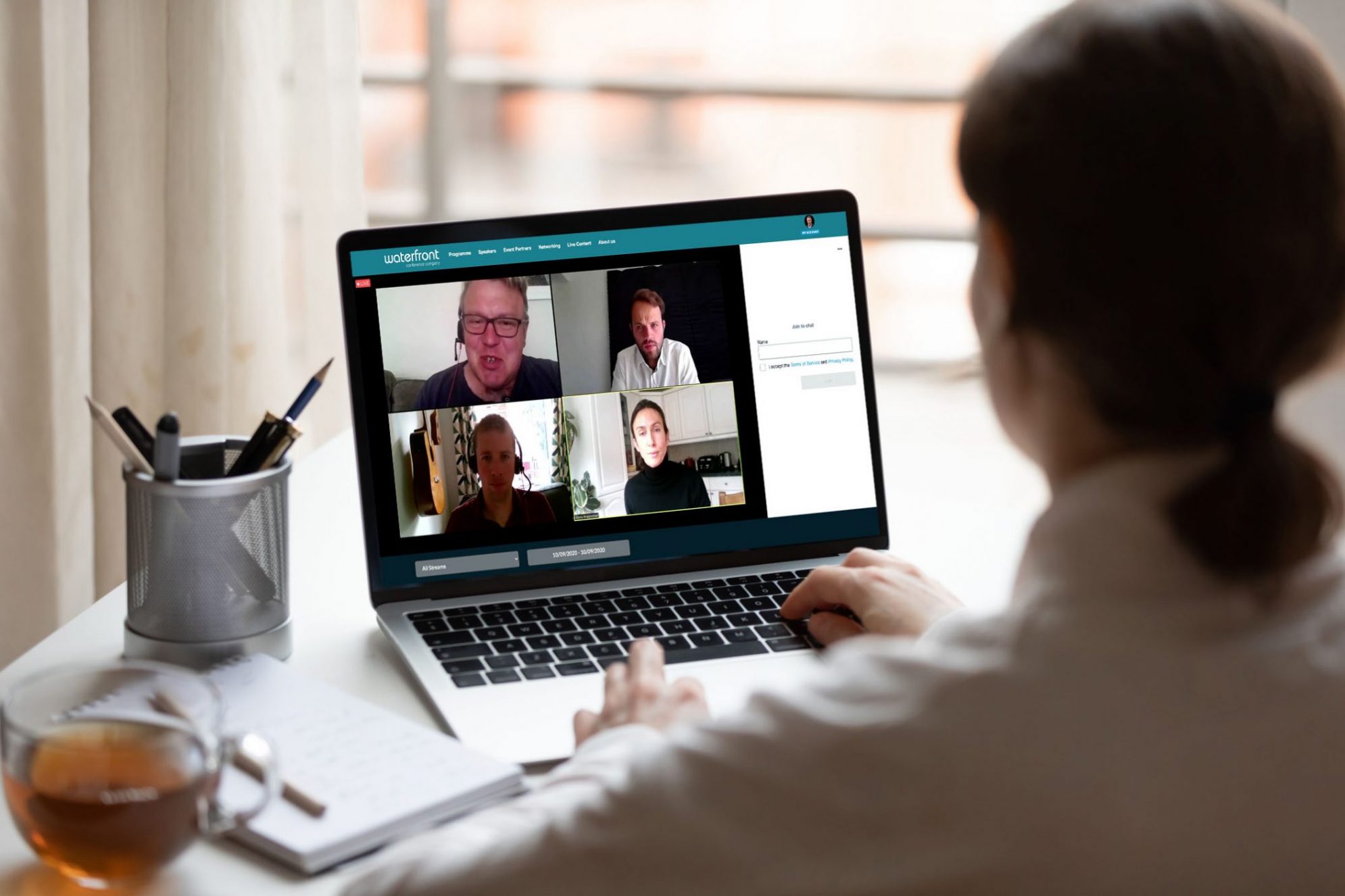
How to run a virtual conference successfully
Face-to-face conferences of over 30 people may still be unable to take place, but this doesn’t mean you can’t hold your conference or event at all; it’s just time to go digital.
Virtual conferences can be engaging and a chance to share the latest learnings with your sector, but where do you start with planning a virtual event and what format should it take?
Waterfront had to adapt its events programme and now all conferences are virtual for the rest of 2020. So here are just a few top tips for virtual conferences from our sister company, learnt from planning and running their own successful virtual conferences and events:
Tips for virtual conferences
- Think about the content – like any event, the success of your virtual conference all comes down to the content and topics you are covering. It doesn’t matter whether the event is virtual or not, as long as you are providing engaging information that attendees need to hear.
- Keep the audience engaged – don’t forget your attendees, even if you can’t see them! It’s harder to continuously listen and engage with talks online, so make sure you are engaging with your audience. Use polls, ask for questions, create opportunities for interaction and think about the visuals. Most importantly, make sure the sessions are not too long. Try and avoid any session lasting over an hour and half without a break and don’t have any one speaker talking for too long.
- Choose the right technology – with technology rapidly evolving and pivoting to support a growing number of online conferences and exhibitions, there is a wide range of different platforms available. The number of options available can be overwhelming, so understand what you want from your event and choose the right technology to support this. Match the technology to your event, not the other way around. Do attendees need to be able to network? Will the sessions just be presentations, or will there be audience discussion and participation? Think about your format and then find the right solution.
- Practice – once you have identified the event platform you are using, you need to make sure you allow time to test the technology with everyone involved in delivering the event – you don’t want any unexpected surprises on the day. Make sure the technology works and speakers understand how to interact with it.
- Technology isn’t perfect – just because you have practiced, doesn’t mean things still can’t go wrong. As we have all learnt from working from home, technology and internet connections can sometimes let you down, so know all your options. Planning and being prepared with back up options mean you are covered in case of any unforeseen circumstances. Simple things such as knowing how speakers can join by phone if their internet goes down, or having more than one person who can run the event, mean you are prepared and attendees won’t be aware of any behind the scenes dramas.
And finally, make sure you have the right support – as with an in-person event, you need the right people helping behind the scenes to make sure the event goes smoothly, from start to finish. From recommending the right platform and supporting content development to running the event on the day.
Are you thinking of holding a virtual event or conference? We can help. Learn more about our events service here. If you’re interested in attending a Waterfront event, you can see all of their upcoming webinars and conferences here.
